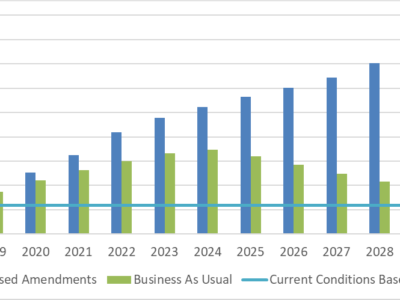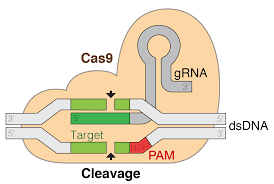biofuels
Does the Law Require Cost-Benefit Analysis?
According to the D.C. Circuit, the answer is no.
Putting aside the particulars of the case, it seems wrong to apply the same standard (monetized cost-benefit analysis) to every provision in environmental law. These provisions have different language, reflecting differences in congressional priorities. Some provisions, for instance, may be designed push industry to find innovative solutions; others may reflect Congress’s value judgments or a desire to limit EPA’s discretion. We shouldn’t assume that the myriad differences in statutory language are irrelevant and that Congress wanted agencies to adopt the same method of making decisions in every case.
CONTINUE READINGMisusing Carbon Removal as a Climate Response
Carbon removal is an alluring idea. That also makes it a tempting façade for bad policies.
It seems clear that in some form, carbon removal is going to be an important component of climate policy, especially later in the century to deal with carbon levels that overshoot the targets in the Paris Climate Agreement. The problem is not with the concept but with its misuse. One of the risks that …
Continue reading “Misusing Carbon Removal as a Climate Response”
CONTINUE READINGA Dozen Strategies for the Struggle With Big Oil
Big Oil will fight against energy transformation. How do we fight back?
The oil industry is enormous – something like 2-3% of global GDP. Individuals firms like ExxonMobil earn tens of billions of dollars each quarter. Controlling climate change will mean drastic curtailment in the coming decades of the industry’s major products. There’s no way that the industry will accept this lying down, and it’s a formidable …
Continue reading “A Dozen Strategies for the Struggle With Big Oil”
CONTINUE READINGU.S. Supreme Court Declines to Revive Challenge to Oregon Clean Fuels Program
Legal Challenges to Oregon & California Vehicle Fuel Carbon-Intensity Standards Close to the End of the Line, Clearing Path Forward to Transformative Reductions in Greenhouse Gas Emissions from Transportation Sector
In this post, we continue our discussion of California’s Low-Carbon Fuel Standard (LCFS), which we introduced in our post on October 4, 2018. This is third in that series. This past Monday, the U.S. Supreme Court denied review of a federal appeals court decision upholding the legality of Oregon’s Clean Fuels Program. That decision finally frees …
Continue reading “U.S. Supreme Court Declines to Revive Challenge to Oregon Clean Fuels Program”
CONTINUE READINGMajor Policy Attacks on California’s Low Carbon Fuel Standard and Why They’re Off-Target
Second in a Series About California’s Low Carbon Fuel Standard Program
[Post co-authored by Ted Parson and Sean Hecht] In this post, we continue our discussion of California’s Low-Carbon Fuel Standard (LCFS), which we introduced in our post on October 4, 2018. Because it’s a prominent and ambitious policy that will reduce California’s reliance on petroleum-based transport fuels, it is unsurprising the Low-Carbon Fuel Standard has …
CONTINUE READINGCalifornia Raises Its Ambition for a Low-Carbon Fuel Future
First in a Series About California’s Low Carbon Fuel Standard Program
[Post co-authored by Sean Hecht and Ted Parson] California’s Air Resources Board (CARB) has just enacted new regulations that strengthen the state’s Low Carbon Fuel Standard (LCFS). The LCFS is a major component of California’s greenhouse-gas control strategy, but receives surprisingly little attention, compared to other policies like the statewide cap-and-trade system and the renewable …
Continue reading “California Raises Its Ambition for a Low-Carbon Fuel Future”
CONTINUE READINGCRISPR Approaches to Environmental Problems
Breakthroughs in gene editing might open the door to improved environmental protections. Or maybe not.
CRISPR is a breakthrough gene editing method. (I can’t refrain from noting that a key role in the discovery was played Jennifer Doudna at Berkeley.) There are potential risks from gene editing to the environment, similar to other types of GMOs. But there may be environmental benefits too. Here are a few that have been …
Continue reading “CRISPR Approaches to Environmental Problems”
CONTINUE READINGSacramento Lunch Briefing On Low-Carbon Biofuel Policies For California
Free event in the State Capitol on Friday, January 22nd
As California commits itself to reducing greenhouse gas emissions from the transportation sector, what role will biofuels play as a petroleum alternative? And how can California ensure that more low-carbon biofuels are produced in-state, especially given the competition from cheap oil and cheap international biofuel? State officials and biofuel producers will address these questions at …
Continue reading “Sacramento Lunch Briefing On Low-Carbon Biofuel Policies For California”
CONTINUE READINGPlanting Biofuels in California
New report on ways to boost in-state production of low-carbon biofuels, plus December 14th webinar
When we think of ways to reduce emissions from petroleum-based transportation fuels, electric vehicles get much of the headlines. Battery electric transportation certainly offers a viable, long-term alternative to petroleum fuels. But we’re still a few years away from an affordable, mass-market electric vehicle, and battery technology may be decades away, if ever, from being …
Continue reading “Planting Biofuels in California”
CONTINUE READINGBiofuels and Food Prices
A recent economics paper suggests strongly that biofuels have raised food prices for the world’s poor.
Berkeley economist Brian Wright has a disquieting article in the Winter 2014 issues of the Journal of Economic Perspectives, which just crossed my desk. JEP is published by the American Economic Association and is a great resource for those of us who are interested in economics but aren’t professional economists. This article is a case in …
Continue reading “Biofuels and Food Prices”
CONTINUE READING










